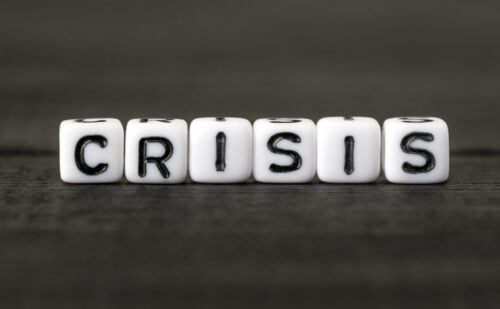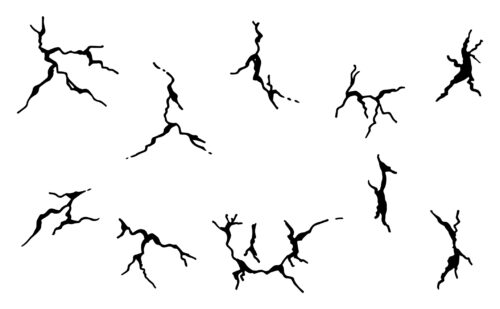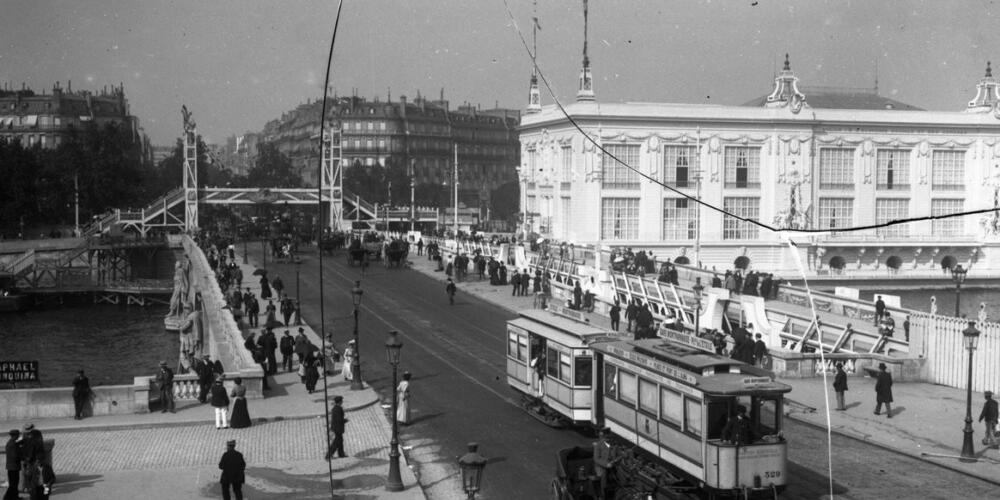
Project of the Month: SciConf
By Rosemary Sweeney
Posted: 12 August, 2022
HERA is pleased to present the next Project of the Month: SciConf
Project Name
The Scientific Conference: a Social, Cultural, and Political History [SciConf]
Project Team
Jenny Beckman, Senior Lecturer in the History of Science and Ideas at Uppsala University.
Charlotte Bigg, Researcher at CNRS, Centre Alexandre Koyré, Paris.
Laura C. Forster, Lecturer in Modern British history at Durham University.
Georgiana Kotsou, PhD candidate at the History Department of Maastricht University.
Thomas Mougey, Postdoctoral Researcher at the Centre Alexandre Koyré.
Jessica Reinisch, Professor of Modern European History at Birkbeck, University of London.
Geert Somsen, Associate Professor of History of Science at Maastricht University and the Vrije Universiteit.
Sven Widmalm, Professor of History of Science and Ideas at Uppsala University.
Describe your project in 1-2 sentences
SciConf studies the history of the phenomenon of the International Scientific Conference. It looks at the internal dynamics of conference meetings as well as the uses of conferences for wider scientific, public and political aims.
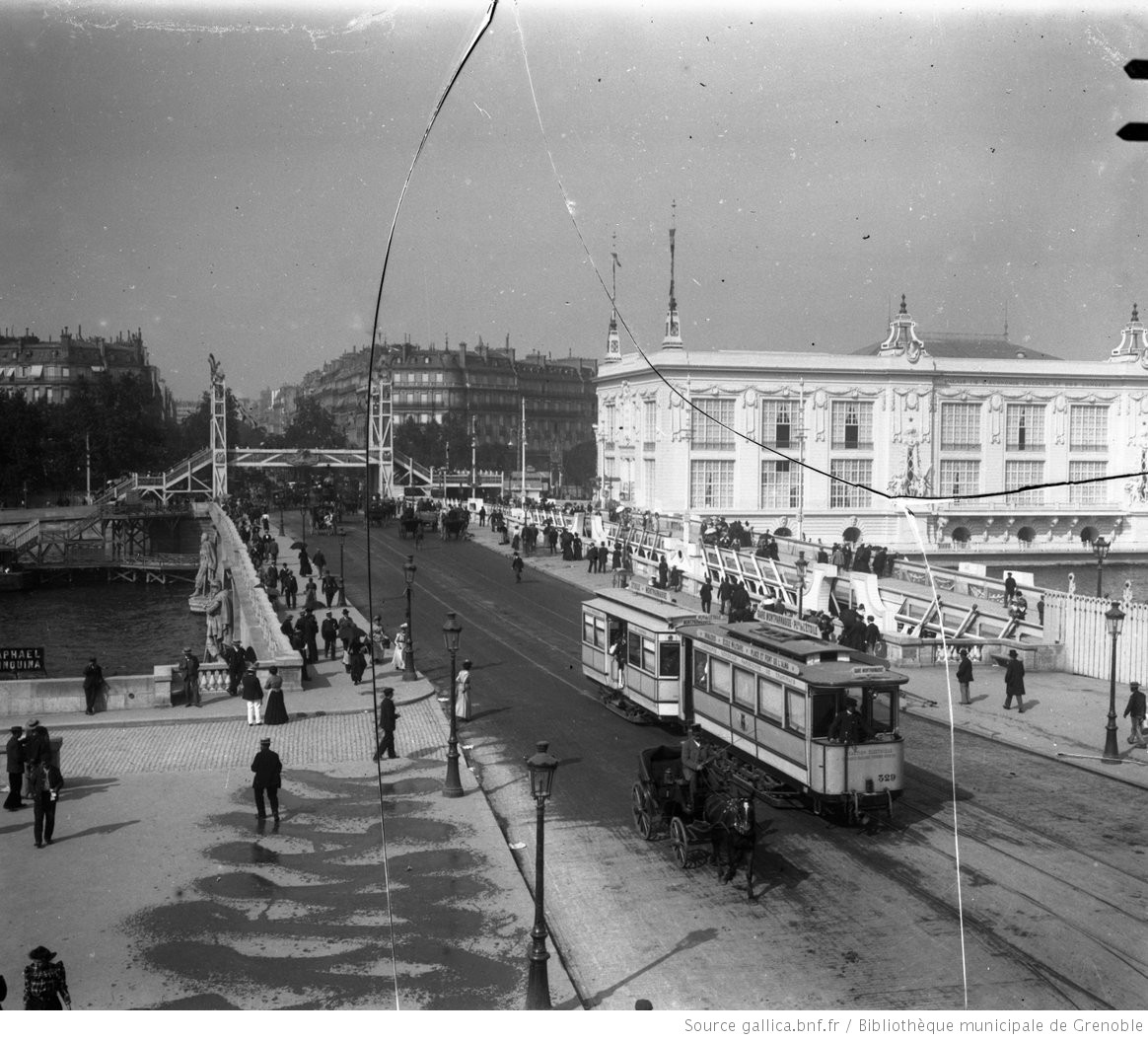
Fig. 1
The palace of congresses and the Alma bridge at the 1900 universal exhibition. Photographer: Henri Ferrand. Credit: gallica.bnf.fr/ Bibliothèque municipale de Grenoble.
Describe your project development to date
Four teams of researchers (in Uppsala, London, Paris, and Maastricht/Amsterdam), plus several affiliated historians, have been exploring the development and changing contexts of the conferencing phenomenon. They have delved into the sometimes odd early meeting forms (e.g. with scientists displayed on public podia), the onsets of now-familiar ways of presenting and discussing research (reading papers, brainstorming sessions), rituals (excursions, city-hall receptions), the many political uses of conferences (from tabling issues such as sex reform to solving “Global Problems”), as well as the institutionalization of conferences as forms of doing international relations.
Conferences have often been very public spaces for advertising the importance and the authority of science, but sometimes they have been exclusive as well as excluding, catering to elites only. Our work captures this dynamic. Altogether we are building up a rich picture of the ways in which scientists met and the reasons why they did so – framed both by major expansions in the international sphere in the nineteenth and twentieth centuries and the changing technological infrastructures that enabled and limited participation. Conferences, it turns out, are complex social phenomena, where a lot happens that cannot be reduced simply to verbal communication.
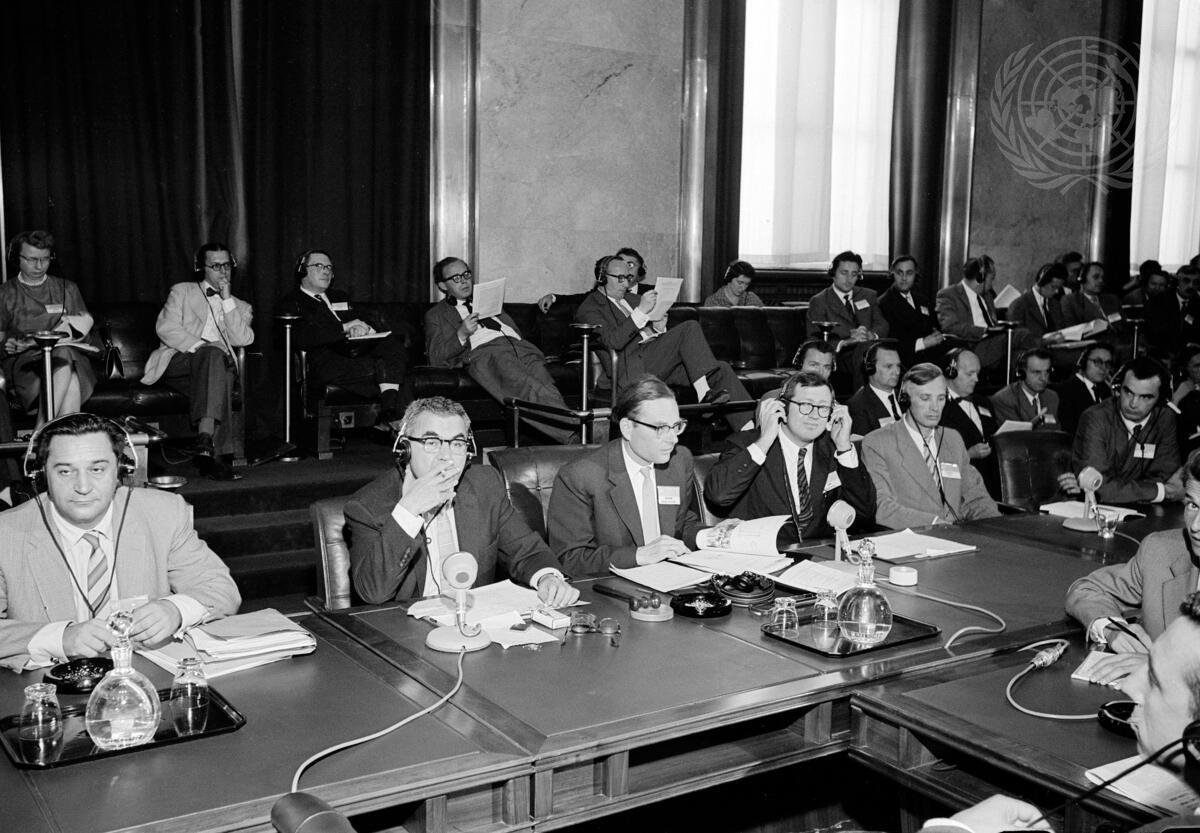
Fig. 2
The Second International Conference on the Peaceful Uses of Atomic Energy, September 1958. Credit: United Nations photo archive, UN7771223.
How did the pandemic impact on the project and how has the project adapted?
The pandemic restricted our access to archives and limited our own communication within the research group and with other colleagues. We could neither run all of our own meetings nor attend as many conferences as planned. We adapted by turning to (scarcer) digitized sources, meeting by zoom, and resuming face-to-face gathering as soon as the lockdowns were lifted.
At the same time the pandemic brought into focus a new core question – What is the difference between face-to-face meetings and communication at a distance? Not having live conferences for two years made academics seriously consider their virtues (and vices). We have been able to give historical context on such discussions.
Interesting collaborations / partnerships:
- Science Museum, London, UK
- Royal Observatory, Greenwich, UK
- Lorentz Center, Leiden, Netherlands
- Science History Institute, Philadelphia, USA
- Royal Swedish Academy of Sciences, Stockholm, Sweden
Apart from these Associate Partners, we have been sharing insights with a group of activist scientists keen to reform meetings: The Future Of Meetings. Furthermore, we have been in conversation with various interested historians, sociologists, scientists, and conference-organizing professionals. The project participants have also received extra funding for collaborative work through a Wellcome Trust Small Grant in Humanities and Social Sciences.
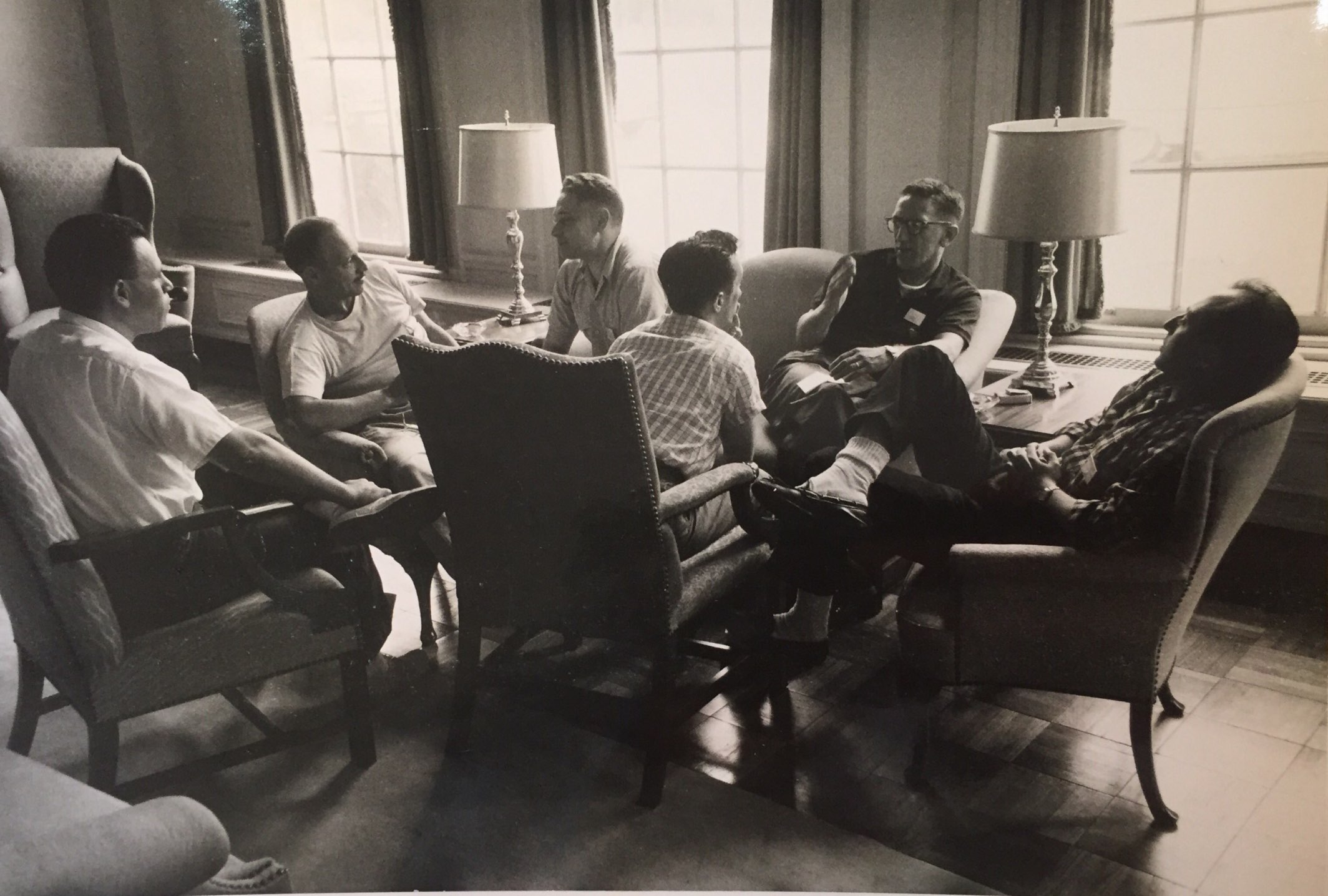
Fig. 3
The Gordon Research Conferences, that started in 1931, have long been known for stimulating informal interaction, as shown in this picture from the 1960s. Credit: Gordon Research Conferences, 5586 Post Road G02, East Greenwich, RI 02818.
Project showcase
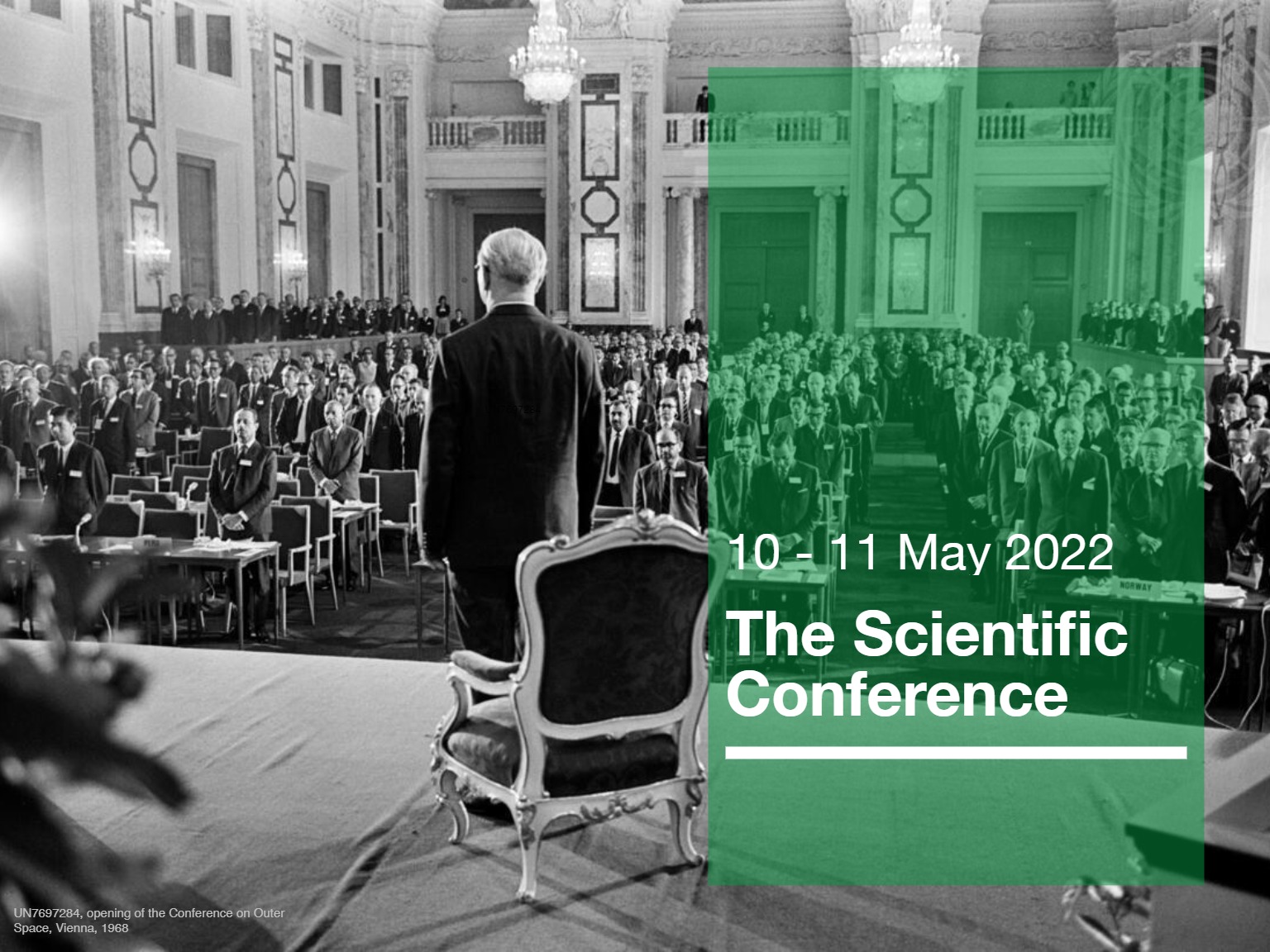
Fig. 4
The front page of the programme folder for the SciConf conference in London, May 2022. The image is from The UN Conference on the Exploration and Peaceful Uses of Outer Space, Vienna, 1968. Credit: United Nations photo archive, UN7697284.
- History of Conferences, panel organised at the Annual meeting of the History of Science Society, Utrecht, 23rd-27th July 2019
- The International Scientific Conference, A visual, material, sensory history, session organised at the European Society for the History of Science annual conference, virtual Bologna, 3rd September, 2020
- The Conference Method, online meeting organized with the Royal Swedish Academy of Sciences, 17 June 2021
- The Scientific Conference, past, present and future, hybrid conference in Leiden, 18th-22nd October, 2021
- Past, Present and future of the Scientific Conference, HSS Roundtable FUTURES, Annual meeting of the History of Science Society, virtual New Orleans, 18th-21st November 2021
- Project workshop, Paris, 25th-27th January 2022.
- The Scientific Conference, conference in London, 10th-11th May, 2022
- The Scientific Conference: History and Future, public lecture and event, Science History Institute, Philadelphia, 3rd November, 2022
Publications
- Geert Somsen, “The Princess at the Conference. Science, Pacifism, and Habsburg Society”, History of Science 59(4) (2021), 434-460.
- Sven Widmalm, “The Place of Humanities in a World of Science: Nobel Symposium 14 and the Vanishing Humanist“ in The humanities and the modern politics of knowledge, ed. Anders Ekström & Hampus Östh Gustafsson, Amsterdam UP, in press.
- Charlotte Bigg, Jenny Beckman, Laura Forster, Georgiana Kotsou, Thomas Mougey, Jessica Reinisch, Geert Somsen, Sven Widmalm & Waqar Zaidi (2022). “Conferences: Constructing Knowledge and Communities”. Viewpoint: Magazine of the British Society for the History of Science 126 (February 2022), 6-7.
- Charlotte Bigg, Jessica Reinisch, Geert Somsen, Sven Widmalm, “No amount of technology can replicate in-person conferences”. Times Higher Education (August 2022).
- The Art of Gathering: Histories of International Scientific Conferences, The British Journal for the History of Science: Special Issue December 2023.
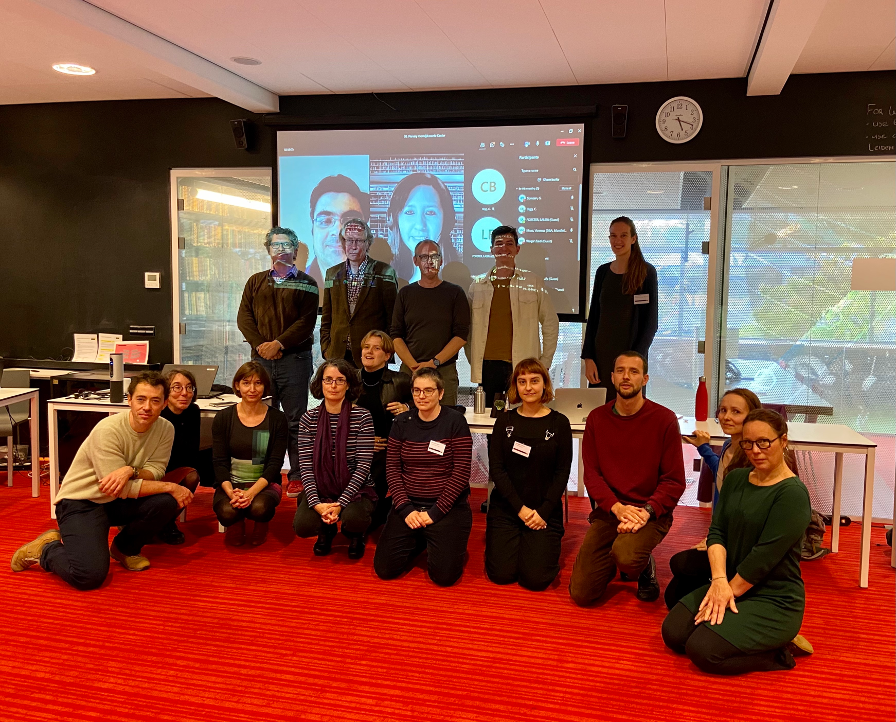
Fig. 5
Our attempt to replicate the typical ‘conference photo’ at a hybrid SciConf workshop organized at the Lorentz Center in Leiden, October 2021.
